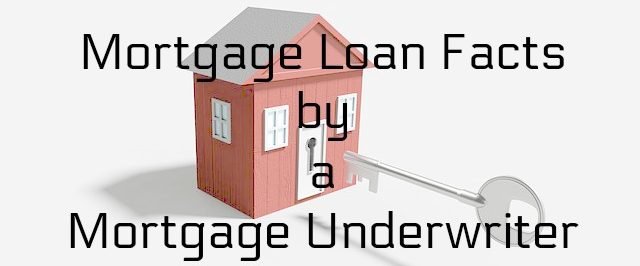Effective Strategies to Pay Off Your Mortgage Early- this can save you thousands…
With the largest purchase in your life that seems to go on forever, you more than likely would love to get your mortgage loan paid off. If you are tired of being burdened by your mortgage and would love to have your home debt free, you’re not alone.
Many homeowners yearn to pay off their mortgages early and save thousands of dollars in interest payments. The good news is that it’s not just a dream; it’s an achievable goal.
With the right strategies and a little discipline, you can accelerate your mortgage payments and be on your way to more financial freedom sooner than you think.
Benefits of Paying Your Mortgage Off Early
Paying your mortgage down or off early comes with several benefits that can have a positive impact on your financial well-being. First and foremost, it provides you with a sense of security and peace of mind.
Being mortgage-free means that you no longer have to worry about making monthly payments. It also gives you the freedom to allocate those funds toward other financial goals or investments.
Additionally, one of the greatest benefits is that it can save you a significant amount of money in interest payments. You are well aware that if you continue to make your payments until the term of your loan expires, the more interest you will end up paying over the life of the loan.
By eliminating this large payment early, you can potentially save thousands or even tens of thousands of dollars in interest payments.
Another important benefit is that this can improve your credit score and make it easier for you to qualify for other loans or credit in the future. It can also give you a greater sense of financial independence and open up opportunities for you to pursue your passions and dreams without the burden of a mortgage payment.
Understanding Your Mortgage Terms and Conditions
Before you can start implementing strategies for this important project, it is wise to have a clear understanding of your mortgage terms and conditions. Take the time to review your mortgage documents and familiarize yourself with the interest rate, loan term, and any prepayment penalties that may apply.
Knowing the specifics of your mortgage will help you make informed decisions about which strategies are most suitable for your situation. For example, if your mortgage has a high-interest rate, you may want to prioritize refinancing to a lower rate (if possible) before focusing on other strategies.
On the other hand, if your mortgage has a prepayment penalty, you’ll need to factor that into your plans. You will need to determine if the penalty outweighs the potential savings of trying to make adjustments to your loan status.
Assessing Your Current Financial Situation
Once you have a good understanding of your mortgage terms, it’s time to assess your current financial situation. Take a close look at your income, expenses, and overall budget to determine how much you can afford to allocate toward accelerating your mortgage payments.
Start by analyzing your monthly income and identifying any areas where you can potentially increase your cash flow. This could include negotiating a raise at work, taking on a side gig or freelance work, or finding ways to monetize your hobbies or skills.
Every additional dollar you can put toward your mortgage will bring you one step closer to paying the entire amount off.
Next, evaluate your expenses and identify areas where you can cut back or eliminate unnecessary spending. This could mean reducing your entertainment budget, eating out less often, or finding more cost-effective alternatives for everyday expenses.
By being mindful of your spending and making small adjustments, you can free up more money to put toward your mortgage payments.
Creating a Budget and Cutting Expenses
Once you have assessed your financial situation, it’s time to create a budget (or adjust the one you already have). You can align it with your goals of being free of your mortgage debt.
A budget will help you track your income and expenses, ensuring that you have a clear picture of where your money is going and enabling you to make informed decisions about how to allocate your funds.
Start by listing all of your sources of income; salary, bonuses, and any additional income streams. Next, make a comprehensive list of your monthly expenses: mortgage payments, utilities, groceries, transportation, and any other recurring costs. Be thorough and include even the smallest expenses to get an accurate overview of your financial situation.
See Where You Can Eliminate Expenses
Once you have identified your income and expenses, look for areas where you can cut back or eliminate unnecessary spending. This could involve canceling subscriptions or memberships you no longer use.
Try negotiating lower rates for your utilities or insurance, or finding more affordable alternatives for everyday expenses. The key is to be proactive and make conscious choices about how you allocate your money.
By creating a budget and cutting expenses, you can free up additional funds to put toward your mortgage payments, ultimately accelerating your journey toward becoming mortgage-free.
Increasing Your Income to Accelerate Mortgage Payments
Increasing your income can significantly impact your ability to help you achieve your goal of paying down your mortgage loan. The more money you have coming in, the more you can allocate towards your mortgage payments, reducing the principal balance and saving on interest.
There are several ways you can increase your income, depending on your skills, interests, and available opportunities. One option is to explore opportunities for career advancement or negotiate a higher salary at your current job.
This could involve seeking additional responsibilities, completing professional development courses, or demonstrating your value to your employer.
Another option is to look for side gigs or freelance work that align with your skills and interests. With the gig economy on the rise, there are numerous opportunities to earn extra income by leveraging your talents. Whether it’s graphic design, writing, affiliate marketing, tutoring, or pet sitting, there are platforms and marketplaces that connect freelancers with clients in need of their services.
Additionally, you could consider monetizing your hobbies or passions by turning them into a profitable venture. For example, if you love baking, you could start a small home-based bakery or sell your creations at local farmers’ markets.
By combining your passion with a business mindset, you can create an additional stream of income that can be used to accelerate your mortgage payments.
Making Extra Payments or Bi-Weekly Payments
One of the most effective strategies for paying down or off your mortgage debt early is to make extra payments whenever possible. By making additional principal payments, you can reduce the outstanding balance of your loan and save on interest over time.
There are several ways you can make extra payments:
• For instance, you could make an extra payment every month.
• You can also allocate a portion of your year-end bonus (if applicable) toward your mortgage.
• If you have any unexpected windfalls, such as tax refunds or cash gifts, this can help you make a lump sum payment. Even small amounts can make a significant difference in the long run.
• Another strategy is to make bi-weekly payments instead of monthly payments. By splitting your monthly payment in half and paying it every two weeks, you end up making 26 half-payments per year, which is equivalent to 13 full payments. This effectively shaves years off your mortgage term and reduces the amount of interest you pay over time.
To implement this strategy, contact your mortgage lender and set up bi-weekly payments. The lender may not have this specific program, but it does not hurt to ask.
Alternatively, you can divide your monthly payment by 12 and add that amount to your regular monthly payment. By doing so, you’ll be making an extra payment each year without changing your payment frequency.
Refinancing Your Mortgage
Refinancing your mortgage is another strategy to consider if you want to decrease your mortgage loan term and save on interest. This involves replacing your current mortgage (as you know) with a new one that has more favorable terms. It can give you a lower interest rate or a shorter term.
The primary goal of refinancing is to secure a lower interest rate, however, it is not always possible. By reducing your interest rate, you can significantly decrease your monthly payments and save on interest over the life of the loan.
Please note the following: At this writing, more than likely getting a lower rate may not be possible unless you pay points to get the rate down. This depends upon when you purchased your home loan. Interest rates are running @ 7.000% +-*see rates here.
If you have sufficient assets to pay discount points to lower the interest rate it would be beneficial. Make sure you understand the clauses within your current documents.
Also, a great significance of refinancing your current mortgage is the closing cost that is required for your loan. If you can pay the closing cost out of pocket and elevate adding it to the mortgage balance, it would be more profitable. * you must weigh the benefits of not adding the closing cost to your balance.
Can You Refinance to a Shorter Term?
Another option is to refinance to a shorter term. If you’re currently in a 30-year mortgage, refinancing to a 15 or 20-year term can help you pay off your mortgage years ahead of schedule.
While your monthly payments may increase, the total interest paid over the life of the loan will be significantly reduced.
Note: The same strategy as mentioned above regarding the closing cost associated with the refinance. If you cannot get a lower interest rate, and cannot pay the closing cost out of pocket is this really going to help you pay off your loan earlier?
What to ask yourself…would you be better off financially making more principal payments instead? Just something to think about.
Before refinancing, it’s important to evaluate the costs involved, such as closing costs and any penalties for paying off your current mortgage early. Be sure to compare lenders and explore different loan options to ensure that refinancing makes financial sense for your situation.
Conclusion
It is important to stay motivated and you can change the process at a later date if needed. Paying your mortgage down or off is a rewarding goal that can provide you with financial security and freedom.
Remember, paying off your mortgage early requires discipline, budgeting, and a long-term commitment. It may not be easy, but the benefits are well worth the effort.
**All lenders do not offer the same terms and conditions. It is important to make sure you understand the lender’s guidelines and how they will affect your loan. Always ask as many questions as possible so that you are getting the best deal available.
Additional Information for Paying Your Mortgage Early



